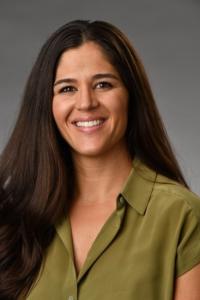Spina Lab
Principal Investigator
The Spina laboratory is interested in understanding the immunologic implications of radiation therapy. Our work leverages preclinical models and high parametric single cell technologies to gain mechanistic insight into tumor immune modulation. By extending these mechanistic studies to human tumor samples, this iterative bench-to-bedside-to-bench approach, combined with strong interdisciplinary collaborations, enable us to focus on advancing our basic science knowledge of radiation immune modulation to develop novel, targeted drugs to combine with radiation to improve the efficacy of our cancer therapies.
Lab Members
Shruti Bansal, PhD
- Associate Research Scientist
Shruti Bansal is an associate research scientist in Spina laboratory where she is studying radiation induced immune modulation of tumor microenvironment. She received her PhD in Microbiology at Panjab University where her work was focused on developing therapies for antibiotic resistant nosocomial pathogens. Her postdoctoral work at the University of Nebraska Medical Center was focused on investigating modulation of immune responses during influenza-bacteria coinfections. More recently, she worked on developing therapeutics for SARS-CoV-2 and alphaviruses and understanding alpha virus persistence at the University of Tennessee Health Science Center.

Matthew Chaimowitz, BA
- Research Associate and Laboratory Manager
I have always had a passion for science from a very young age and always wanted to pursue a career in the field. I have been working in research laboratories since 2015 and have loved every step of the way. I enjoy research and working in a lab because it gives me a sense of fulfillment and purpose, like I am really making a difference in the world. I am passionate about improving treatments for cancer patients as well as doing my best to help try to beat cancer once and for all. I believe the hands-on experience in a scientific setting, including working with cancer cells themselves and the handling of mice, is just an added bonus.
Besides science, I really enjoy spending time with friends and family, sports (both watching and playing), going to movies, and of course trying new foods. I hope to travel to as many different places as I can and experiences all the different cultures there are to offer. Feel free to reach out to me for any questions regarding our work.

Select Publications
Spina CS, Tsuruoka C, Mao W, Sunaoshi MM, Chaimowitz M, Shang Y, Welch D, Wang Y, Venturini N, Kakinuma S, Drake CG. Differential immune modulation with carbon-ion versus photon therapy. Int J Radiation Oncol Biol Phys. 2020 In press
Aggen DH, Ager, CR, Obradovic A, Chowdhury N, Ghasemzadeh A, Mao W, Chaimowitz M, Lopez-Bujanda A, Spina CS, Hawley JE, Dallos MC, Zhang C, Wang V, Li Hu, Gou X, Drake CG. Blocking Interleukin-1 beta promotes tumor regression and remodeling of the myeloid compartment in a renal cell carcinoma model: Multi-dimensional analyses. Clin Cancer Res. 2020
Black PJ, Smith DR, Chaudhary K, Xanthopoulos EP, Chin C, Spina CS, Hwang ME, Mayeda M, Wang YF, Connolly EP, Wang TJC, Wuu CS, Hei TK, Cheng SK, Wu CC. Velocity-based Adaptive Registration and Fusion for Fractionated Stereotactic Radiosurgery Using the Small Animal Radiation Research Platform. Int J Radiat Oncol Biol Phys. 2018; 102(4): 841-947.
Spina CS. Androgen deprivation therapy and radiation therapy for prostate cancer: the mechanism underlying therapeutic synergy. Transl Cancer Res. 2018; 7(suppl 6): S695-S703.
Powers JT, Tsanov KM, Pearson DS, Roels F, Spina CS, Ebright R, Seligson M, de Soysa Y, Cahan P, Theissen J, Tu HC, Han A, Kurek KC, LaPier GS, Osborne JK, Ross SJ, Cesana M, Collins JJ, Berthold F, Daley GQ. Multiple mechanisms disrupt the let-7 microRNA family in neuroblastoma. Nature. 2016; 535(7611):246-51
Spina CS*, Torisawa YS*, Mammoto T, Mammoto A, Weaver JC, Tat T, Collins JJ, Ingber DE. Bone marrow-on-a-chip replicates hematopoietic niche physiology in vitro. Nat Methods. 2014;11(6):663-9.
Spina CS*, Kalghatgi S*, Costello JC, Liesa M, Morones-Ramirez JR, Slomovic S, Molina A, Shirihai OS, Collins JJ. Bactericidal antibiotics induce mitochondrial dysfunction and oxidative damage in Mammalian cells. Sci Transl Med. 2013;5(192):192ra85.


